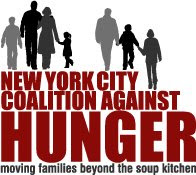
In the fight to woo new groceries to underserved neighborhoods,
New York will likely model policies on
Pennsylvania’s $120 million
Fresh Food Financing Initiative, which has attracted 50 food stores to the state since 2004, and was recently cited among the top 50 public programs in the nation by
Harvard University's John F. Kennedy School of Business. The initiative offers a
combination of financial incentives, including tax credits, state funding and private grants, for supermarkets that serve fresh food in low-income areas. The state’s interest in the
Pennsylvania program follows a
sharp drop in the number of city supermarkets over the past six years: a trend that state officials hope to rectify, while improving on current methods for food retail development.
Previous city projects include a joint venture with the East Harlem Abyssinian Triangle and the Abyssinian Development Corporation that brought
Pathmark to 125th street in 1999, and with it, nearly two hundred new jobs for neighborhood residents. Said New York State Agriculture Commisioner Patrick Hooker at a recent listening session of the State Board of Food Policy, “I think we’re on a track that will lead to better food access in lower-income communities.
We’re familiar with [the effort in] Pennsylvania. I’m looking forward to moving ahead with that.”
 In the fight to woo new groceries to underserved neighborhoods,
In the fight to woo new groceries to underserved neighborhoods,  In the fight to woo new groceries to underserved neighborhoods,
In the fight to woo new groceries to underserved neighborhoods,  In the fight to woo new groceries to underserved neighborhoods,
In the fight to woo new groceries to underserved neighborhoods, 
2 comments:
Hmm, whenever I read about supermarket initiatives, I always have mixed feelings.
On one hand, i am very partial to food co-ops, if they indeed work. Though, food co-ops don't do very much in bringing many jobs to the community. The Park Slope co-op has (has had) something like 16,000 members, but really only employs probably like 30 people.
And although people do save from the co-op discount, I wonder if that ever equals the economic contribution jobs give to a community. I wonder if there is a study comparing retail and cooperative markets in terms of economic development.
Michael,
Check out: http://www.coopmonth.coop/download_files/economicimpact.final.pdf
The data's a few years old, but it gives a good outline of co-op revenues. I don't think there's any doubt that co-ops surpass groceries when it comes to community development, especially those that participate participate in EBT and WIC and offer further services like nutrition education.
Post a Comment